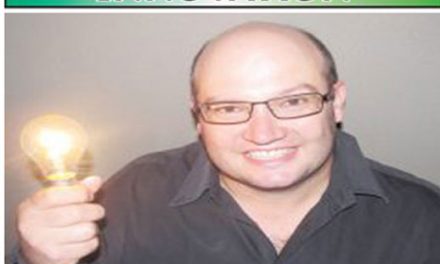
Offbeat 04 November 2016
Halloween has been and gone. I write a column about it every year, but this year the time that I would normally have written it was cramped with work, and the deadline was impossible.
I still have this window to write it though. Today is the second of November. In the Anglican and Roman Catholic calendars, it is marked as All Soul’s Day. In Mexico, it is the second day of El Dia de los Muertos, the Day of the Dead celebration.
I have an affinity for Halloween, and this set of days. Normally, I watch some or other horror movie, usually The Shining. This year I decided not to be repetitive and bought Conjuring 2. I haven’t been able to watch more than a few minutes, so I can’t give a report on the thing, other than to tell you that the reviews give it respect for a slow build up of fear. I need to be unstressed and very relaxed before I have the ability to appreciate shocks. Maybe I will watch the movie in fast-forward.
But there is more to it than the quick head-rush of fear. I use the time to reconnect to myself, spiritually, in some kind of background way. In this day and age of dour-faced atheists, worshiping at the fashionable, yet loveless, altar of Dawkins, Halloween and All Souls are still a way for me to remember that death is a transition, not an end, and there is the vestige of consciousness in the afterlife.
Two years ago, I wrote about the concept of the walls between the realms of the living and the dead, thinning at this time, making it easier to sense the realm of spirits, find ghosts. I haven’t experienced any ghosts, other than in books and movies.
In this year, I read a couple of ghost stories. Some were pleasant and funny, some a bit scary and some, like Shirley Jackson’s Haunting of Hill House, completely disturbing.
One of the stories I looked at, but didn’t buy, posited that the dead are dependent for their existence, on the memory of the living. From what I could see of the plot device, large-scale deaths on earth lead to mass disappearances in the realm of the dead. It’s a clever idea. I imagine people like Shakespeare and Einstein are well-established wherever they are. I wonder if Kurt Cobain is happy now? Unfortunately I didn’t make a note of the title.
Something about the idea of people living on because we remember them rings true to me. During this period, I spend a bit of time remembering my dead: family, friends, people and animals. I think about moments when we interacted, and hope that they are out there, remembering as well. They are my personal ghosts.
I had a discussion with someone, a while ago, from one of the odder Christian sects. That person thought of Halloween as a pagan holiday until I pointed out the Christian tradition of the thing. The approach of the sect was disturbing, that people should put the dead behind them and not dwell on them. I understand and follow the ongoing revisions of Christianity, usually with some kind of acceptance, but that bit of behavior modification came across as revolting.
As much as we are shaped by people around us, and their ideas, we are also shaped by the ghosts of our past: mothers and fathers who raised us, family, friends and lovers who influenced us, even pets that we loved. That’s the positive side.
The negative side are the people who had nothing to give but prolonged anger and hatred. Those are the creatures of the popular ghost stories, the ones who come back and afflict us with horror.
Thinking about movies and books in the horror genre, the interesting thing is that the successful books give character to the ghosts that they portray.
Those characters are diverse. I remember one story in which a ghost who died unhappy spread her mood of misery to the living. Movies struggle with that, needing the sense of fear to sell.
My own ghosts have their personalities as well, and I can look back and see how they shaped me. Halloween is far more than fear of the dead. In fact, it is an opportunity to remember where I have come from.












































